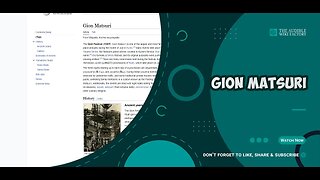Adam Smith was a Scottish economist and philosopher who was a pioneer in the thinking of
Adam Smith was a Scottish economist and philosopher who was a pioneer in the thinking of political economy and key figure during the Scottish Enlightenment. Seen by some as "The Father of Economics" or "The Father of Capitalism", he wrote two classic works, The Theory of Moral Sentiments (1759) and An Inquiry into the Nature and Causes of the Wealth of Nations (1776). The latter, often abbreviated as The Wealth of Nations, is considered his magnum opus and the first modern work that treats economics as a comprehensive system and as an academic discipline. Smith refuses to explain the distribution of wealth and power in terms of God's will and instead appeals to natural, political, social, economic and technological factors and the interactions between them. Among other economic theories, the work introduced Smith's idea of absolute advantage.
Smith studied social philosophy at the University of Glasgow and at Balliol College, Oxford, where he was one of the first students to benefit from scholarships set up by fellow Scot John Snell. After graduating, he delivered a successful series of public lectures at the University of Edinburgh, leading him to collaborate with David Hume during the Scottish Enlightenment. Smith obtained a professorship at Glasgow, teaching moral philosophy and during this time, wrote and published The Theory of Moral Sentiments. In his later life, he took a tutoring position that allowed him to travel throughout Europe, where he met other intellectual leaders of his day.
As a reaction to the common policy of protecting national markets and merchants, what came to be known as mercantilism—nowadays often referred to as "cronyism" or "crony capitalism"—Smith laid the foundations of classical free market economic theory. The Wealth of Nations was a precursor to the modern academic discipline of economics. In this and other works, he developed the concept of division of labour and expounded upon how rational self-interest and competition can lead to economic prosperity. Smith was controversial in his own day and his general approach and writing style were often satirised by writers such as Horace Walpole.
EARLY LIFE
Smith was born in Kirkcaldy, in Fife, Scotland. His father, also Adam Smith, was a Scottish Writer to the Signet (senior solicitor), advocate and prosecutor (judge advocate) and also served as comptroller of the customs in Kirkcaldy. Smith's mother was born Margaret Douglas, daughter of the landed Robert Douglas of Strathendry, also in Fife; she married Smith's father in 1720. Two months before Smith was born, his father died, leaving his mother a widow. The date of Smith's baptism into the Church of Scotland at Kirkcaldy was 5 June 1723 and this has often been treated as if it were also his date of birth, which is unknown.
Although few events in Smith's early childhood are known, the Scottish journalist John Rae, Smith's biographer, recorded that Smith was abducted by Romani at the age of three and released when others went to rescue him. Smith was close to his mother, who probably encouraged him to pursue his scholarly ambitions. He attended the Burgh School of Kirkcaldy—characterised by Rae as "one of the best secondary schools of Scotland at that period"—from 1729 to 1737, he learned Latin, mathematics, history, and writing.
LINK TO ARTICLE: http://en.wikipedia.org/wiki/Adam_Smith
TAGS: Adam Smith, Fellows of the Royal Society of Edinburgh, Virtue ethicists, Social philosophers, Social critics, Scottish social commentators, Scottish scholars and academics, Scottish philosophers, Scottish logicians, Scottish economists, Scottish business theorists, Rectors of the University of Glasgow, Philosophers of logic, Philosophers of ethics and morality, Philosophers of economics, People from Kirkcaldy, Political realists, Moral philosophers, Members of the Philosophical Society of Edinburgh, Founder Fellows of the Royal Society of Edinburgh, Fellows of the Royal Society, Enlightenment philosophers, British cultural critics, Cultural critics, Classical economists, Capitalism, Burials at the Canongate Kirkyard, British male non-fiction writers, British classical liberals, Alumni of the University of Glasgow, Alumni of Balliol College Oxford, Age of Enlightenment
#GeneralKnowledge #AudibleWikiFactory #Audible #Wikipedia #AdamSmith
-
 6:00
6:00
The Audible Wiki Factory
1 year agoThe Gion Festival is one of the largest and most famous festivals in Japan, taking place
322 -
 2:14:28
2:14:28
Matt Kohrs
14 hours agoTrump BODIES Biden, The Fall of Memes & The Week Ahead || The MK Show
25.2K4 -
1:48:15
jeffahern
3 hours agoMonday Madnes with Jeff Ahern (6AM Pacific)
9.26K3 -
 29:57
29:57
Cody and Kellie
17 hours agoWhy a Truck Camper? Honest Six Month Review, Living in a Truck Camper
31.5K24 -
 9:50
9:50
DepressedGinger
18 hours agoBiden *DENIES* polls, somehow thinks he's beating Trump
37.9K79 -
 6:42
6:42
Vehicles Unlimited
21 hours ago2024 Chevrolet Trax Activ // The Best Compact SUV This Year?
43.8K6 -
 29:54
29:54
TampaAerialMedia
22 hours agoMiami Travel Guide - Downtown, Key Biscayne, Coral Gables
40K12 -
 9:06
9:06
Mally_Mouse
19 hours agoCongress is getting trashy
43.9K61 -
 1:15:15
1:15:15
TheTapeLibrary
16 hours agoScary Stories On A Rainy Night (Rain Sounds | Relaxing Horror Stories To Fall Asleep To)
22.5K4 -
 3:41:38
3:41:38
The Jimmy Dore Show
1 day agoThe Jimmy Dore Live Panel Show
190K201